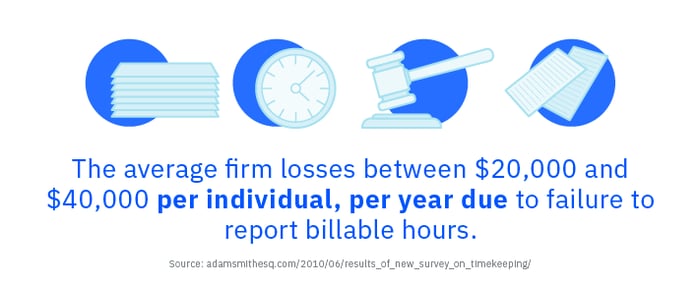Any time a professional sector faces the rise of new technology, there are justifiable questions. The legal field is no exception. Many people are asking whether machine learning has a place in law and even questioning the ethical implications of using AI in law.
How AI can impact the legal industry
In 2016, Stanford University student Josh Browder was facing thousands of dollars in parking tickets in New York City. To combat those fees, he created DoNotPay—now dubbed "The World's First Robot Lawyer." The AI-powered chatbot asks a series of questions before guiding users through the legal process to avoid parking tickets, sue corporations for data breaches, and even get money back when airline prices drop. DoNotPay might not have really been the first, but it was one of the most visible introductions into how AI and machine learning might impact the future of the legal industry.
No matter what anyone thinks, the fact is that technology is set to disrupt the way lawyers write, research, strategize, and even run their firms. To stay competitive, your firm needs to be ready. Here is everything you need to know about how AI and analytics will revolutionize the legal profession.
AI = Better analytics = Higher profitability
AI is at the forefront of technological shifts in nearly every industry. From agriculture to software development—and nearly every industry in between—AI is taking on menial tasks, sorting data, and finding areas for improvement.
Machines can effectively sort through mountains of data to spot trends and correlations humans would have likely never noticed.
Analytics is one of the most important areas where AI is impacting how firms run. Machines can compile information, analyze that data, and find ways to operate more efficiently and more profitably. This can impact nearly every aspect of a firm, including marketing, billing, and customer acquisition.
AI can improve time usage and billing accuracy
The legal field is about understanding people—clients, judges, and even a jury. But how well do you understand your lawyers? What do they spend the largest portion of their time doing? Are partners spending time on tasks that should be delegated?
Improved analytics will allow firms to better analyze the work their people do and whether that time is being used effectively. This can help prevent "leakage," or billable time lost due to failure to report it.

Analytics can provide a deeper insight into what impacts margins and even review invoices to look for inconsistencies. Some even predict AI could result in the end of the billable hour.
Smart analytics identify opportunities to cut costs
Law firms are constantly looking for ways to reduce or control costs. In addition to better tracking for billable hours, AI can also help firms track accounts receivables, find patterns to reduce spending and make adjustments to the valuation of work-in-progress (WIP) cases.
In fact, during a presentation at the Intapp Connect conference, Bret D. Chapman, the Chief Administrative Officer at Husch Blackwell LLP, revealed that recent adjustments to billing, leakages and the work-in-progress cycles at his firm increased overall revenue by 29 percent in just one year.
AI empowers firms to better understand marketing and customer acquisition
Most firms use a CRM system to track customer relationships, but where do those customers come from? Analytics, when paired with marketing data, makes it easier to understand the cycle of client acquisition, including what campaigns were most effective and how clients choose your firm over another.
Find your fit in the market with advanced analytics tools
Data analytics can help firms—and customers—better understand who works fastest, who has the most successful cases, and even what tasks could be performed cheaper by partnering with alternative legal service providers (ALSPs are businesses that specialize in delivering a handful of legal services traditionally provided by law firms with advantages including lower costs, higher speed, and more).
According to a Thomson Reuters 2019 study, the ALSP industry is growing quickly, with an annual revenue of $10.7 billion. This is expected to grow in the coming years as customers rely on ALSPs to perform work such as document review and legal research.
Identify patterns that are naked to the human eye
AI solutions are ideal for noticing patterns that are hard for humans to perceive. For example, do you acquire more divorce clients before or after the holidays? Or, does the loss of a major client often correlate with longer response times from your customer service reps? Are customers who reschedule two to three meetings more likely to leave a negative response on your customer satisfaction survey?
Spotting these patterns ahead of time can allow you to better prepare for an influx of clients or increase staff on a specific account to prevent an unsatisfied customer from leaving your firm.
Provide better customer service through the use of chatbots
Chatbots are AI-based bots that can conduct a conversation (the “chat” part) with users based on a database of brand information which may include ebooks, FAQs, and other resources.
Today, chatbots can carry on full conversations, point users to resources, and even offer legal advice.
In the digital marketing industry, they are becoming extremely popular as a way to qualify leads, offer customer service, and provide resources. When applied to the law field, chatbots could boost marketing teams in the same way as well as improve website usefulness for clients and allow law firms to offer 24/7 customer service without paying for additional staff.
Use AI and Analytics to Develop Legal Strategies
Lawyers have long used statistics to make strategic decisions. However, adding AI and machine learning to the mix now makes it easier for firms to access much more granular information. Tools like boosted decision trees could reveal information such as what decisions a particular judge relies on and even what language they use to cite when ruling on motions.
This information could make it easier to build arguments that are likely to resonate with a particular judge—or educate them in an area they do not generally rule on.
Increase productivity by automating manual tasks
How long do lawyers in your firm work every day? What about support staff? If you are not leveraging the power of AI, there is a good chance they are spending hours a week on tasks that, while important, do not require the expertise of a lawyer—or even a person. For example tasks like reviewing documents or performing research. It is a given that the legal field requires long hours.
AI can drastically improve the accuracy and efficiency of law work by automating a range of manual tasks that eat up valuable time. Work that previously took hours or was pushed off to support staff could be partially automated with the help of AI.
Eliminate the grueling bits of writing briefs
Writing legal briefs can be a tedious and even painful process that most lawyers would happily turn over to a machine if it were possible. But, machines can't think or argue, and briefs need to be well-written and persuasive.
That said, computers are getting better and better at creating complex thoughts using neural networks, which are algorithms modeled after a human's own brain patterns.
Giants like Google Translate and TalkToTransformer are using this technology to build AI bots that can properly write and translate content. The content is not perfect, but when given enough input they are able to return solid first drafts. This could allow lawyers to spend more time polishing briefs rather than grinding through hours of tedious writing.
Make legal research less cumbersome
Legal research is one of the most crucial parts of any legal case, but it is time-consuming. In addition, humans are prone to errors—especially when they are tired or working too fast. AI-powered software has the potential to overhaul this task, making research faster and far more effective.
All it takes is marking certain documents as “relevant,” from there the machine learning algorithms get to work finding similar documents. This can reduce the load on humans drastically.
An example of this is WestSearch Plus, an AI-powered search bot from Thomson Reuters Westlaw.
Jon Meyer, Director of Reference Attorneys at Thomson Reuters, says:
“The new search engine, WestSearch Plus, not only returns relevant documents, but it also provides highly responsive suggestions that answer thousands of types of black-letter-law questions, which can really be helpful if you’re doing research in an unfamiliar jurisdiction or topic, or if you need to get an answer quickly while on the phone.”
The tool also makes it easier to see how laws have changed over time, using highlights and strikethrough text to denote changes in laws.
Review contracts as much as 90% faster
Many lawyers spend a good portion of their time reviewing contracts to look for risks, suggest changes, and help clients negotiate better terms. And while no AI can negotiate a better deal (yet), bots can analyze large numbers of contracts all at once.
Humans will always have the final say, but tools like eBrevia use cutting edge AI technology and machine learning to review documents. What is more, they claim to be 10 percent more accurate and 30 to 90 percent faster.
Because solutions like this use machine learning; they get smarter, faster, and more effective each time you use them.
Automate legal and administrative processes
The legal profession is an inherently human one. AI will never replace the expertise of lawyers or the value that they provide. However, certain processes in the legal field, such as handling meetings and even divorce cases, could become completely automated.
For example, with the goal of “making every divorce amicable,” legal AI solution Wevorce provides couples with a self-guided online divorce solution where they answer questions about “optimal outcomes” and the AI software walks them through all the necessary decisions. If couples need more guidance, they can reach out to legal experts for help.
Meeting management is another manual task that AI and analytics can help automate and take off a busy lawyer’s hands. There are around 55 million meetings held each week in the U.S. which means that there are at least 11 million per day, and over 1 billion per year. Professionals spend around 15% of their time on meetings, and research shows that 71% of those meetings are considered unproductive. It is unfortunate that meetings are often seen as time and energy drains, considering the fact that employees who meet regularly actually experience up to a 10 percent increase in productivity.
So, why do they get such a bad rap? Because often we are not automating the planning and follow-up processes to get the most out of them. With meeting management software that handles finding the perfect space, flawlessly managing visitors, and following up with resource utilization data and insights; firms can automate heavy admin tasks and boost their profits.
How will you use AI and analytics to keep up with advances in the legal industry?
We have said it before: The future of profitable law firms is technology.
Artificial intelligence is already transforming the legal profession in a variety of ways through improved access to data. As the field grows, AI is taking over many time-intensive legal tasks, which frees up humans to take on more critical tasks like reviewing pre-sorted documents, negotiating, and appearing in court.
Lawyers accustomed to "the way we've always done things" may worry the legal industry will reduce the overall need for lawyers. After all, legal bots don’t require sleep or vacation and can work 24/7. That should not be a concern; AI and machine learning are incapable of truly replacing lawyers. However, they can be an effective way to optimize time and thus improve profitability.
Instead of worrying about being replaced by AI, legal firms should focus on being replaced by competitors. As more firms embrace this technology, those who are better equipped to use AI will earn a competitive edge by working more efficiently and effectively.



